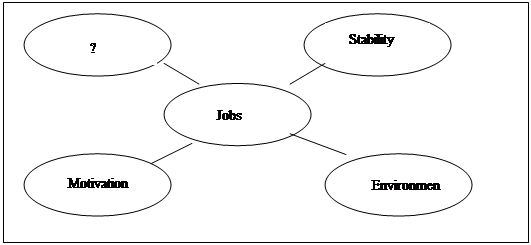题目内容
Most people say “yes” much more readily than “no”.
A friend is moving house this weekend and would like some help, and you agree. But, what you really wanted was relaxing at home for a couple of quiet days. Or a roommate spends the whole weekend playing video games and wants to borrow your homework for “reference”.But, you’ve just finished it after working hard for a whole day.
Many people say “yes” to this kind of requests. They tend not to consider their own interests and feelings, and are often angry with themselves afterwards. Saying “no” requires courage and considerable practice. “Everyone wants to be liked.” Says Gabriele Steinki, a German psychologist. “Saying ‘no’ risks losing the affection of the person asking for the favor. Or even a job.” The result is that many people say “yes” just for keeping the peace. But experts say this is regrettable. Anyone should have the right to say “no”. In fact, rejecting a request can even help to stabilize a relationship because it expresses real affection. But, for people accustomed to agreeing every request, it’s very distressing to say “no”.
Most people believe that if they say “no”, they’ll lose the affection of the person. But the affection is important to them. This way of thinking can be replaced by this: “If he only likes me because I always do what suits him, then the price of this affection is too high in the long term.”
When people saying “no”, Steinki advises giving the reasons calmly until the person gets the message.
60. What does the second paragraph tell us?
A. In fact people are usually selfish.
B. Sometimes people say “yes” when they really want to say “no”.
C. It’s not suitable to ask others to help at weekends.
D. It’s disgusting to borrow homework for reference.
61. Many people don’t say “no” though they really want to because .
A. they dare not offend the asker
B. they are afraid of braking the good relationship with the asker
C. they don’t care about their own feeling
D. they are good-tempered
62. The underlined word “distressing” can be replace by “____”.
A. comfortable B. funny C. unnecessary D. uncomfortable
63. The best title for the passage would be ____.
A. You Need Courage to Say “No”
B. Saying “No” Is More Important Than Saying “Yes”
C. Saying “No” Would Bring Benefits
D. The Art of Saying “No”
60. B 第二段讲了两个例子都说明人们想说NO时却说了YES
61. B 根据第三段“Everyone wants to be liked.” Says Gabriele Steinki, a German psychologist. “Saying ‘no’ risks losing the affection of the person asking for the favor. Or even a job.” The result is that many people say “yes” just for keeping the peace.可知。
62. D
63. A

 课前课后同步练习系列答案
课前课后同步练习系列答案 课堂小作业系列答案
课堂小作业系列答案 黄冈小状元口算速算练习册系列答案
黄冈小状元口算速算练习册系列答案 成功训练计划系列答案
成功训练计划系列答案 倍速训练法直通中考考点系列答案
倍速训练法直通中考考点系列答案 一卷搞定系列答案
一卷搞定系列答案 名校作业本系列答案
名校作业本系列答案Taiwan will finalize a plan by the end of June to open up the island to tourists from mainland China, though no date has been fixed for formal implementation(执行), an official at the Mainland Affairs Council(MAC)said on Monday.
The official said the reports in the local press on Monday that the MAC has dec ided to postpone its plan to announce the implementation of the new plan on July 1 were inaccurate.
ided to postpone its plan to announce the implementation of the new plan on July 1 were inaccurate.
The official said cooperation between different organizations was still underway.The United Daily news quoted the director of the MAC’s legal affairs department, Liu Thehsun, as saying the plan to open up to mainland tourists would not be implemented as scheduled due to a lack of cross-strait communication.
Although relevant authorities, including the Bureau of Immigration and the Tourism Bureau, have complete reports on how to deal with visitors from mainland China, the decision has been taken not to press, ahead with announcement of the plan’s implementation on the first of July, Liu was quoted as saying.
The report also said that while no restrictions would be imposed on the mainland visitors in terms of age or residence in China, the visitors would need to hold a steady job or have more than 50,000RMB(about 6,000, U.S.dollars)in bank savings before they would be eligible(有资格的)to visit Taiwan.
In addition, Taiwan bound mainland tourists would have to come as part of a tour group and would be allowed to stay a maximum of 10 days each time.
The number of mainland tourists allowed to enter the island would also initially be limited to 1,000 people a day.
Although most people from Taiwan are free to travel to China, only a small number of mainland Chinese have been able to visit the island due to restrictions imposed by both sides of the Taiwan Strait after the end of a civil war in 1949.
【小题1】At the moment, according to the passage, ___________.
| A.no mainland Chinese can visit Taiwan now |
| B.any mainland Chinese can visit Taiwan now |
| C.many mainland Chinese have ever visited Taiwan since 1949 |
| D.a few mainland Chinese have ever visited Taiwan since 1949 |
A.there will be no restr ictions to mainland visitors ictions to mainland visitors |
| B.mainland visitors who want to travel in Taiwan must have at least ¥50,000 in the bank savings account |
| C.there will be no age restrictions to the mainland visitors |
| D.mainland visitors will be free to travel to Taiwan |
| A.MAC | B.United Daily |
| C.several organizations | D.Bureau of Immigration |
| A.The implementation of the plan has not been fixed. |
| B.It was originally fixed on July 1 to announce the plan’s implementation. |
| C.For lack of cross-strait communication, the plan will not be officially completed until July. |
| D.When the plan is finalized, it will be announced immediately. |
 it but later found it made you feel very uncomfortable over time? When you select your career, there’s whole lot more to it than assessing your skills and matching them with a particular position. If you ignore your personality, it will hurt you long-term regardless of your skills or the job's pay. There are several areas of your personality that you need to consider to help you find a good job. Here are a few of those main areas:
it but later found it made you feel very uncomfortable over time? When you select your career, there’s whole lot more to it than assessing your skills and matching them with a particular position. If you ignore your personality, it will hurt you long-term regardless of your skills or the job's pay. There are several areas of your personality that you need to consider to help you find a good job. Here are a few of those main areas: 